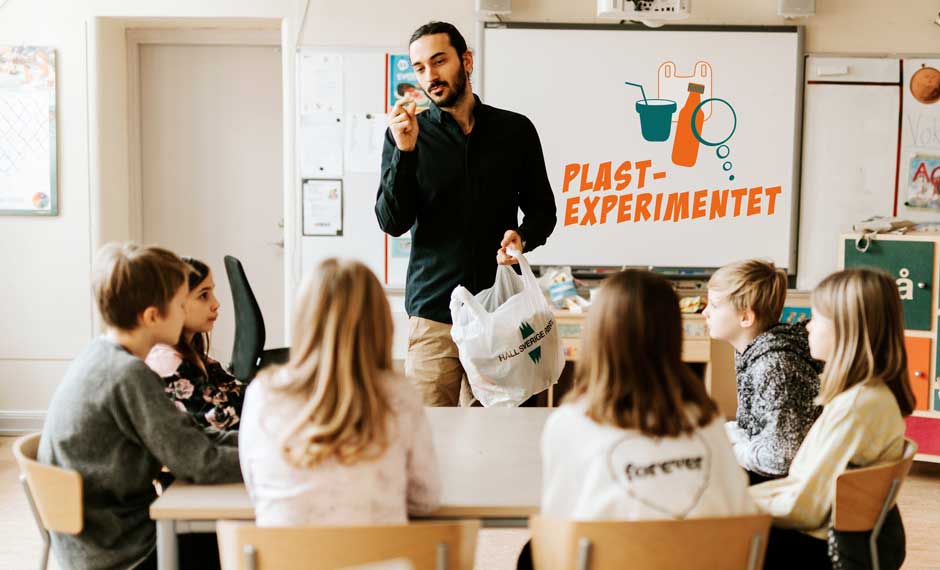Get involved in citizen science to help the environment! Plastic pollution in nature is one of today’s major global environmental problems. The production, use and waste management of plastic products leads to environmental impacts that affect humans, plants and animals. In ForskarFredag’s mass experiment 2022/23 – the Plastic Experiment – everyone and especially school pupils was part of a research project to help map how much plastic pollution can be found in different types of nature throughout Sweden.
Plastic pollution in the oceans has received a lot of attention in recent years, but plastic waste is basically a problem that comes from the land. Excessive use of single-use plastic and packaging as well as ineffective waste management means that plastic often ends up in nature instead of being recycled. In order to solve these problems and reduce plastic litter in nature, we need to understand more about where, when and why plastic ends up there. This is something we don’t yet understand!
Through a nationwide citizen science project, involving participants across the whole of Sweden collecting and analysing plastic waste, we undertook a scientific study together with researchers to investigate the extent of plastic in the Swedish natural environment. How much plastic is there in nature? What type of plastic is it and how does it vary between different places and types of habitat? These are some of the questions we want to answer. Together, we collected far more data than has previously been possible, or than one researcher could do on their own.
How did it work
The Plastic Experiment was divided into two parts, a collection part for everyone and a voluntary analysis part for elderly school pupils. During the collection part, participants helped survey plastic litter in the Swedish environment. The participants selected one of four types of nature and collected the plastic litter found in a 100-meter-long area. The collected litter was then weighed and sorted into different categories of plastic (e.g. disposable cutlery, straws and plastic bags). The data was then submitted using an online tool.
Once collection was complete, the type of plastic could then be identified in the voluntary analysis part of the experiment for elderly school pupils. This was done with the help of an identification key whereby the properties of the plastic are tested e.g. in water, in oil and during combustion. Using the key, the outcome of the tests determines the type of plastic (polymer type). The analysis part was best suited to pupils in Year 7 and above.
The Plastic Experiment had a total of four data collection periods in 2022 and 2023. In 2022, the period was 17 April – 31 May, and also ran in conjunction with the ForskarFredag science festival, 1 September – 13 October. In 2023, the experiment ran from 17 April – 31 May and 1 September – 13 October.
The scientific lead of the project was Professor Bethanie Carney Almroth, a researcher in Ecotoxicology and Zoophysiology, research assistant Emil Larsson and Magnus Bergquist at the Department of Psychology at the University of Gothenburg.
The project is based on the Danish mass experiment on plastic pollution, plastforurening
Agenda 2030
The Swedish government has declared that Sweden aims to be a world leader in the implementation of the 2030 Agenda and its 17 global goals for sustainable development. The Plastic Experiment will contribute to the implementation of a number of global goals and sub-goals, particularly because plastic pollutants and many of the chemicals found in plastics are hazardous to health. The project will contribute to:
Goal 3: Good health and wellbeing – to ensure healthy lives and promote well-being for all at all ages, particularly via sub-goal 3.9 – Reduce the number of deaths and illnesses from hazardous chemicals and pollution.
Goal 4: Quality education – to ensure inclusive and equitable quality education and promote lifelong learning opportunities for all, particularly via sub-goal 4.7 – Education for sustainable development and global citizenship.
Goal 6 Clean water and sanitation – to ensure availability and sustainable management of water and sanitation for all, particularly via sub-goal 6.3 – Improve water quality and the treatment of wastewater and increase recycling.
Goal 11: Sustainable cities and communities – to make cities and human settlements inclusive, safe, resilient and sustainable, particularly via sub-goal 11.6 – Reduce the environmental impact of cities.
Goal 12: Responsible consumption and production – to ensure sustainable consumption and production patterns, particularly via sub-goal 12.4 – Environmentally sound management of chemicals and all wastes throughout their life cycle.
Goal 14: Life below water – to conserve and sustainably use the oceans, seas and marine resources for sustainable development, particularly sub-goal 14.1 – reduce marine pollution and sub-goal 14.a Increase scientific knowledge, develop research capacity and transfer marine technology to improve ocean health.
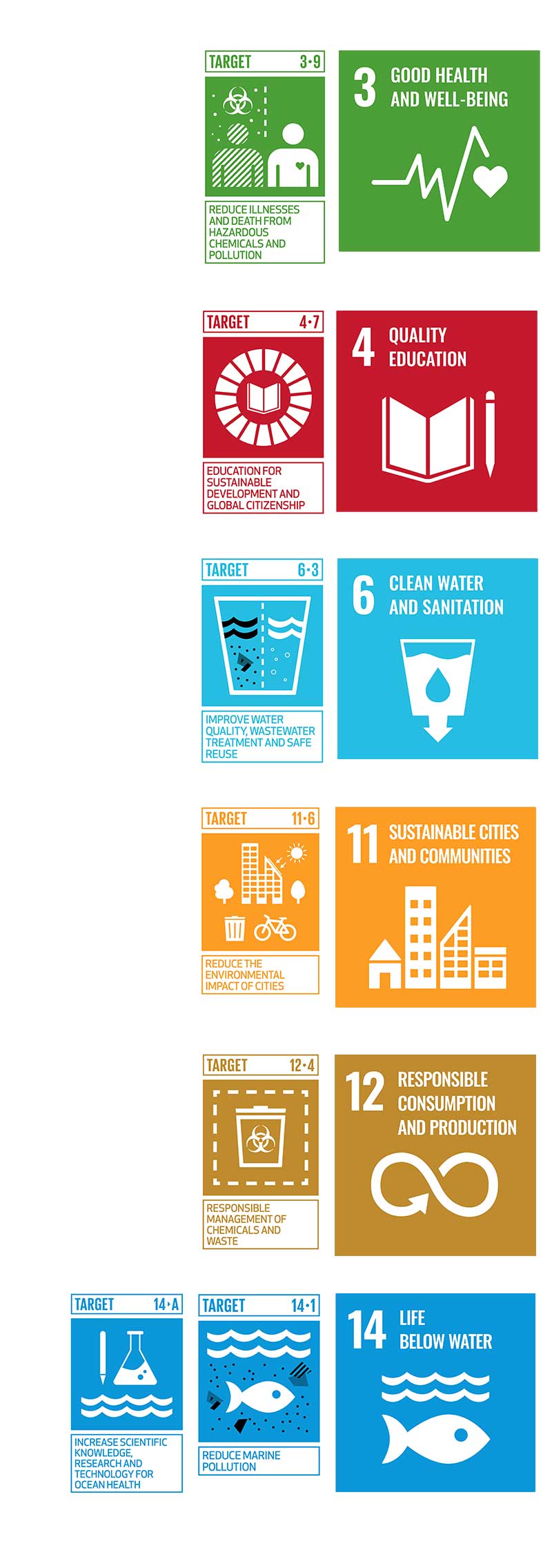
The Plastic Experiment is a collaboration between the University of Gothenburg, the non-profit organisation VA (Public & Science), the science festival ForskarFredag and the Keep Sweden Tidy Foundation. The Plastic Experiment is funded by the research council Formas and partly by the EU’s research and innovation programme Horizon Europe (GA No:101061464) as part of European Researchers’ Night.
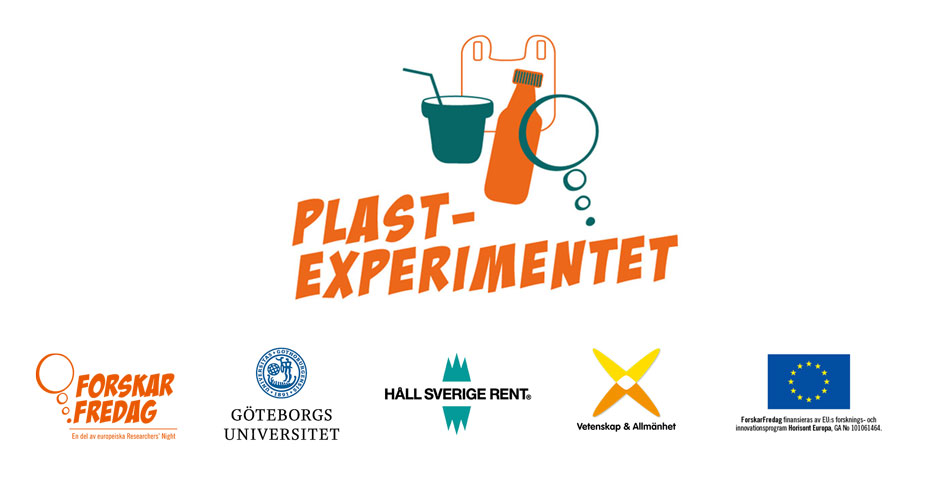
Latest about the Plastic Experiment:
Findings from Sweden’s largest plastic waste experiment now available
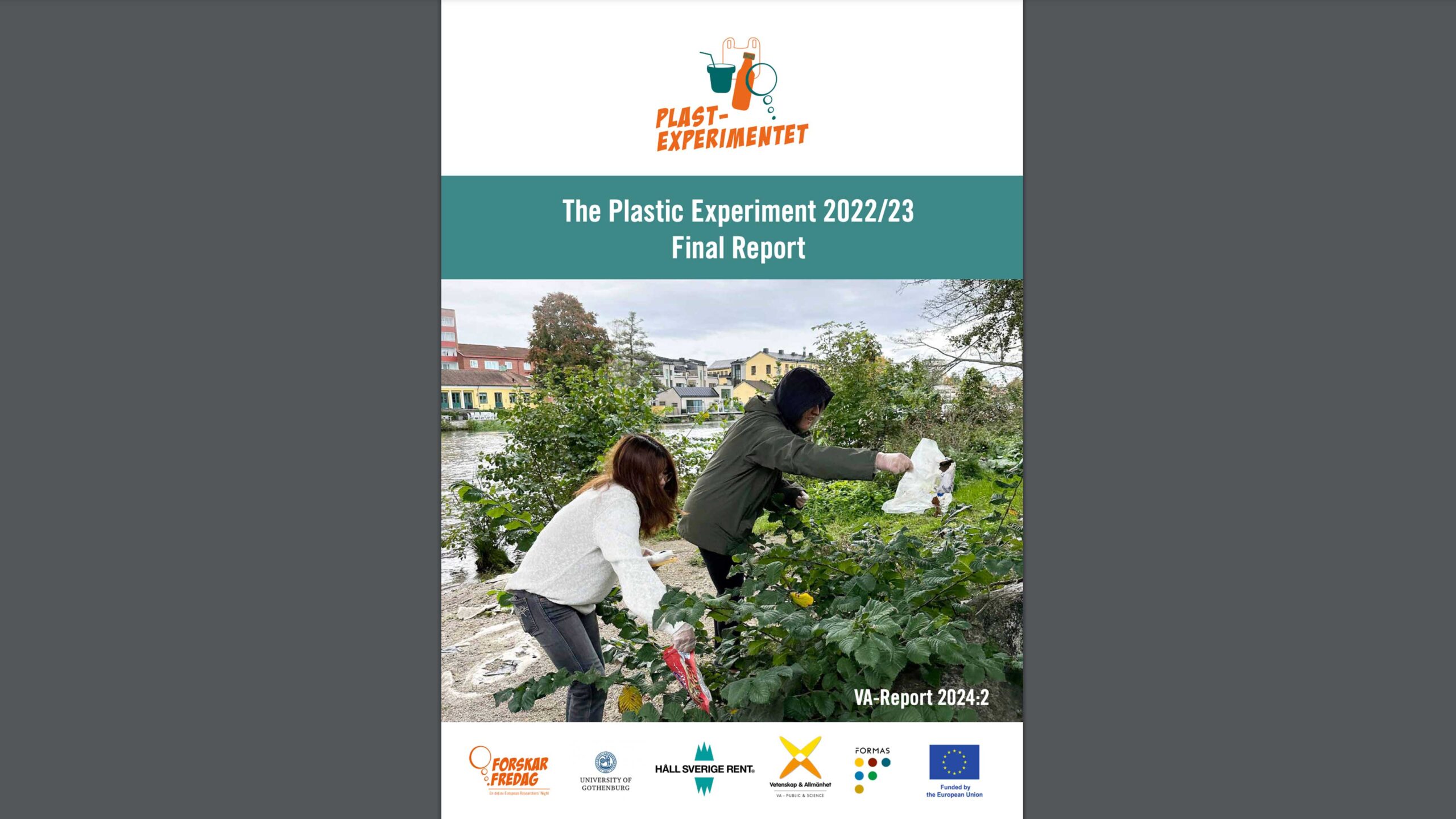
The Plastic Experiment is a nationwide Citizen Science project in which Keep Sweden Tidy Foundation, Public & Science Sweden and the University of Gothenburg have been working together to investigate… Läs mer
Most plastic litter found on beaches reveals Swedish citizen science project
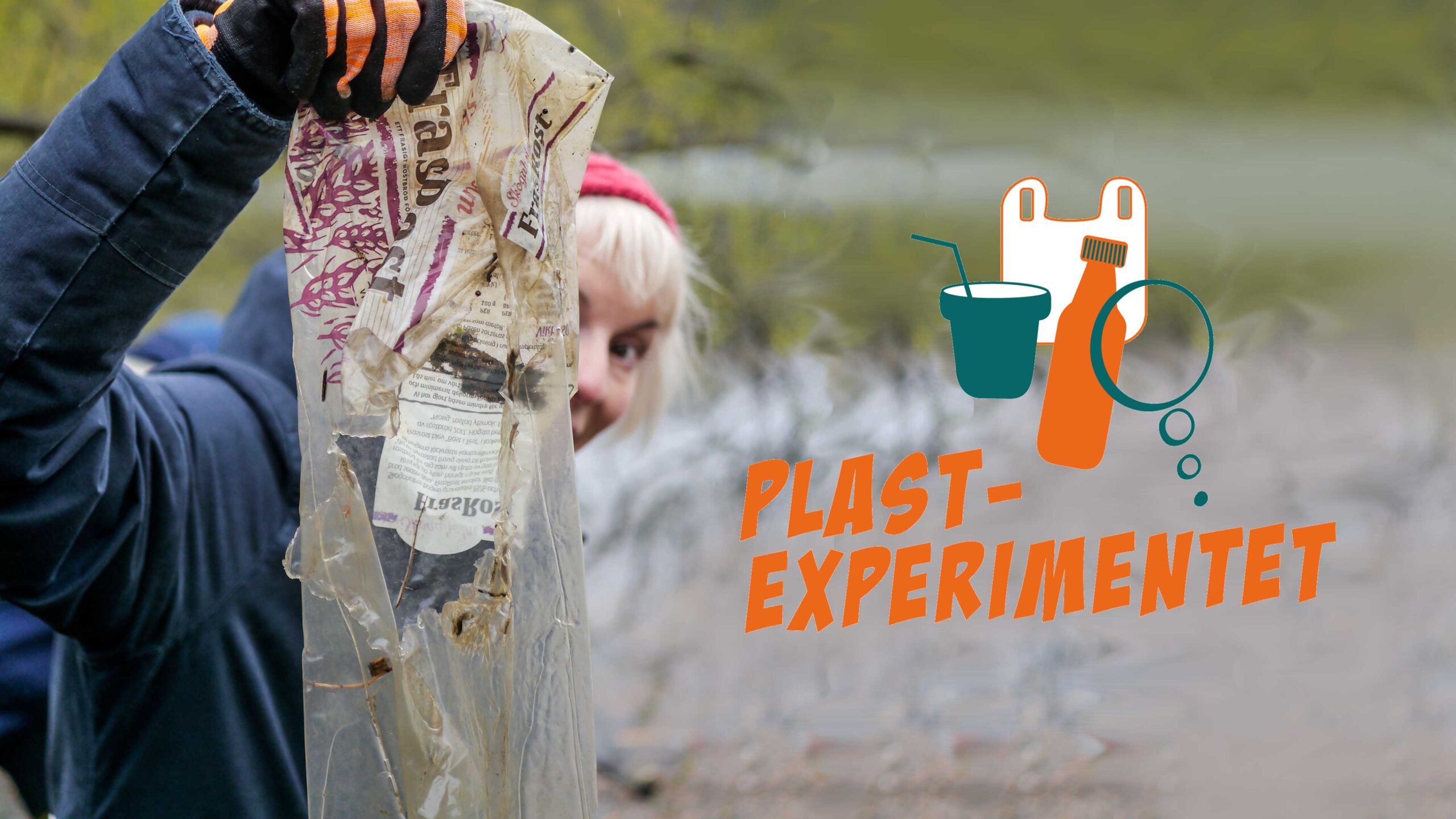
The first report of the Plastic Experiment, a citizen science project involving young people and members of the public from across Sweden, has now been published. The most plastic litter… Läs mer
Whole of Sweden invited to help research plastic pollution
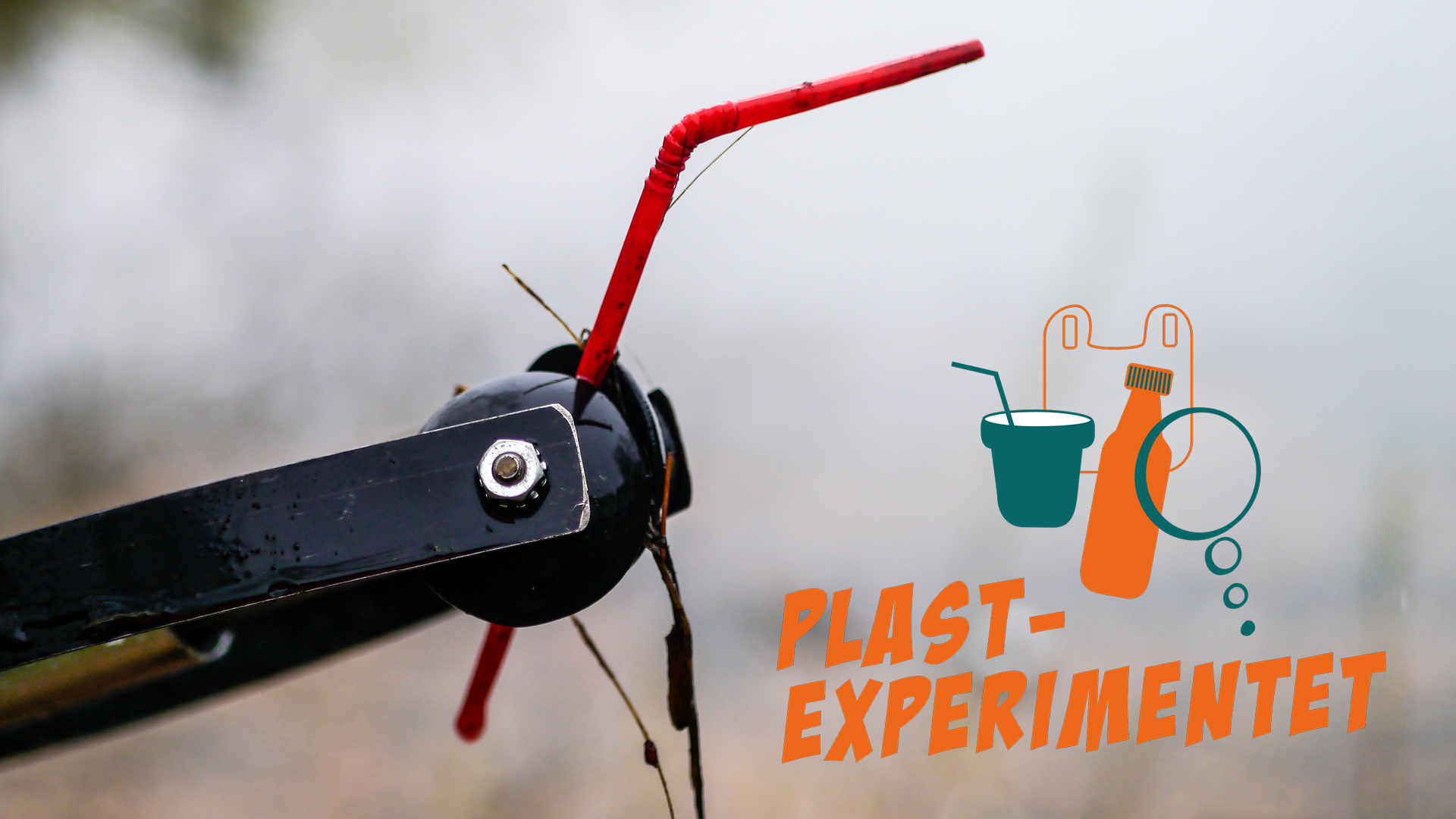
The Plastic Experiment is part of ForskarFredag, European Researchers’ Night in Sweden, and is being run by VA in collaboration with the Keep Sweden Tidy Foundation and the University of… Läs mer
Swedish school pupils help log 19,000 items of plastic litter in nationwide citizen science project
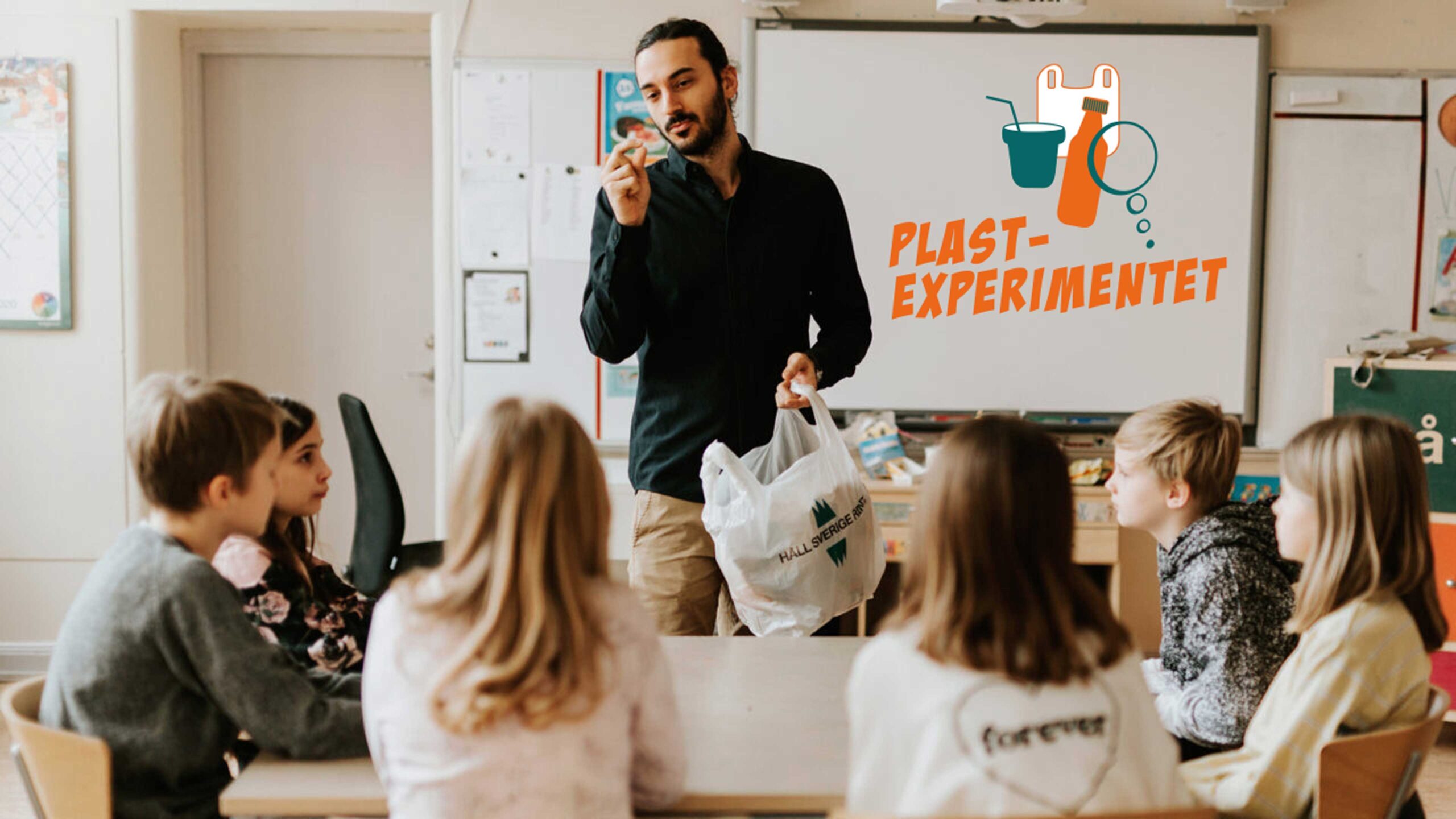
Plastic litter in the oceans has major consequences for humans, plants and animals, but it is a problem that starts on land. In the Plastic Experiment, school pupils are helping… Läs mer

